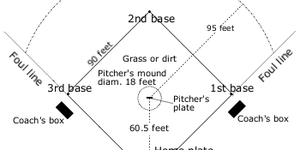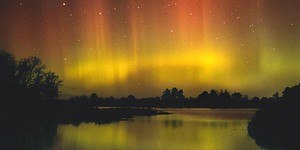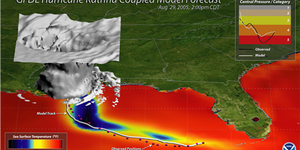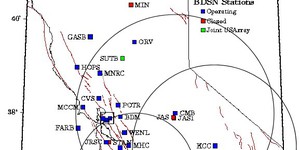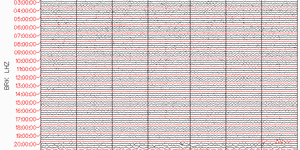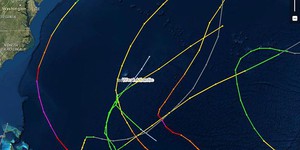Investigate Science Data Online Science Projects (33 results)
Download data from free online tools and databases to explore questions about astronomy, the weather, biology, geology, or sports. Find patterns in the same data that scientists and professionals use.
|
Social media is all the buzz on the internet. What can we do with all the information generated by millions of people posting, tweeting, taking pictures, and chatting? How do companies convert it into profit? While you do not have the tools to analyze data from millions of social media posts by yourself, you will be able to analyze a scaled-down version. Follow the instructions in this project to try your hand at extracting data from a couple of social media sites and use it to create…
Read more
Featured
Have you heard that garlic powder is supposed to inhibit the growth of bacteria? Which do you think would make a better disinfectant: a solution of garlic powder or a solution of bleach? This project shows you a straightforward way to compare the effectiveness of different disinfectants (or other antimicrobial agents), by measuring zones of inhibition on a culture plate.
Read more
Scientists recently found that some small drugs can stop infection by the deadly Ebola virus in
its tracks. Lab researchers found that these drugs bind to a protein that the Ebola virus uses to enter
our cells, and this is how infection is prevented. However, this also means that the bound protein no
longer functions in our cells. How might these drugs accidentally disrupt important biological processes
in our bodies? What other proteins might these drugs bind to? In this science project,…
Read more
Sunspot activity has been monitored continuously since about 1700. The historical data shows that sunspot activity rises and falls in a roughly 11-year cycle. This project shows you how you can use both graphical and statistical analysis to look for patterns in cyclical data.
Read more
There is a lot of energy that can be harvested from moving water. Energy can be extracted from water rushing over a waterfall and from the regular patterns of the ocean's tides. The energy that propels waves forward in the oceans can also be extracted and used. But can wave energy power plants be built anywhere there is water? In this energy science fair project, you will use ocean buoy data and mathematics to determine which locations along the coasts of the United States can sustain a wave…
Read more
Have you ever wondered how playing in a certain stadium affects how well the athletes perform? Major League Baseball (MLB) is played in ballparks that have their own individual quirks when it comes to the exact layout of the field. How an individual ballpark affects player performance, which is known as ballpark effects, is heavily investigated in the field of baseball. To name just a few parks and their different traits, Fenway Park (the long-time home ballpark for the Boston Red Sox in…
Read more
Scientists have known for hundreds of years that sunspot activity waxes and wanes over a cycle that lasts approximately 11 years. In the 1970's, scientists discovered that the sun periodically blasts electrified gases into space, in huge outbursts called 'coronal mass ejections,' or CMEs. This project asks the question: do CMEs follow the solar sunspot cycle?
Read more
If you've ever so much as watched a news clip about a hurricane, you probably know that hurricanes draw their power from warm ocean waters. If that is true, does it mean that hurricanes actually cool the ocean down when they pass through? Can the amount of cooling be measured? Is it proportional to the strength of the hurricane? Find out using data that you can collect yourself using online archives. This project shows you how.
Read more
When an earthquake happens, how are scientists able to determine the original location of the quake? In this project, you'll use archived data from a network of seismometers to find out for yourself. You'll create your own seismograms from the comfort of your own computer with an easy-to-use webpage interface. Then you'll analyze your seismograms to determine the distance of the quake from each seismometer station. By mapping your analyzed data, you will be able to determine the location of the…
Read more
Have you ever wondered how fast a seismic wave from an earthquake travels? In this geology science project you can figure this out using historical seismograph data that you can collect from the comfort of your own computer. You will use a web interface to a network of seismometers run by the Northern California Earthquake Data Center, at the University of California, Berkeley. From the seismograms you make, you will be able to measure the time it took for the seismic waves to travel from the…
Read more
The past few years have histories of extremely powerful and dangerous storms. Storms have also become more numerous over the last few years. To investigate potential effects of climate on hurricane number and strength, in this project you will study the effects of El Niño on hurricanes. The goal of this project is to study the historic relationship between the El Niño/Southern Oscillation (ENSO) and the number and strength of hurricanes, either in the Atlantic or Pacific Oceans. Since…
Read more
|
Explore Our Science Videos
Slippery Slopes - STEM activity
Explore the Wet Sand Effect – STEM activity
Video: Paper Airplane Launcher








